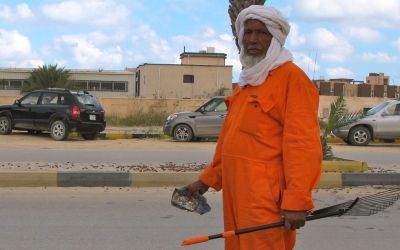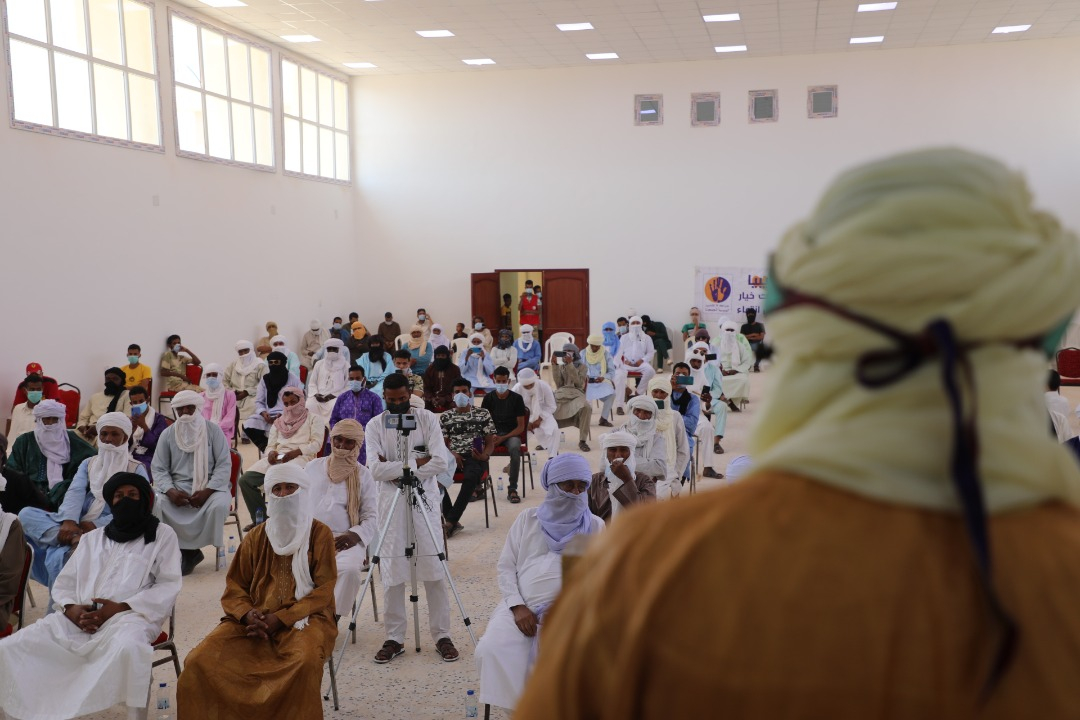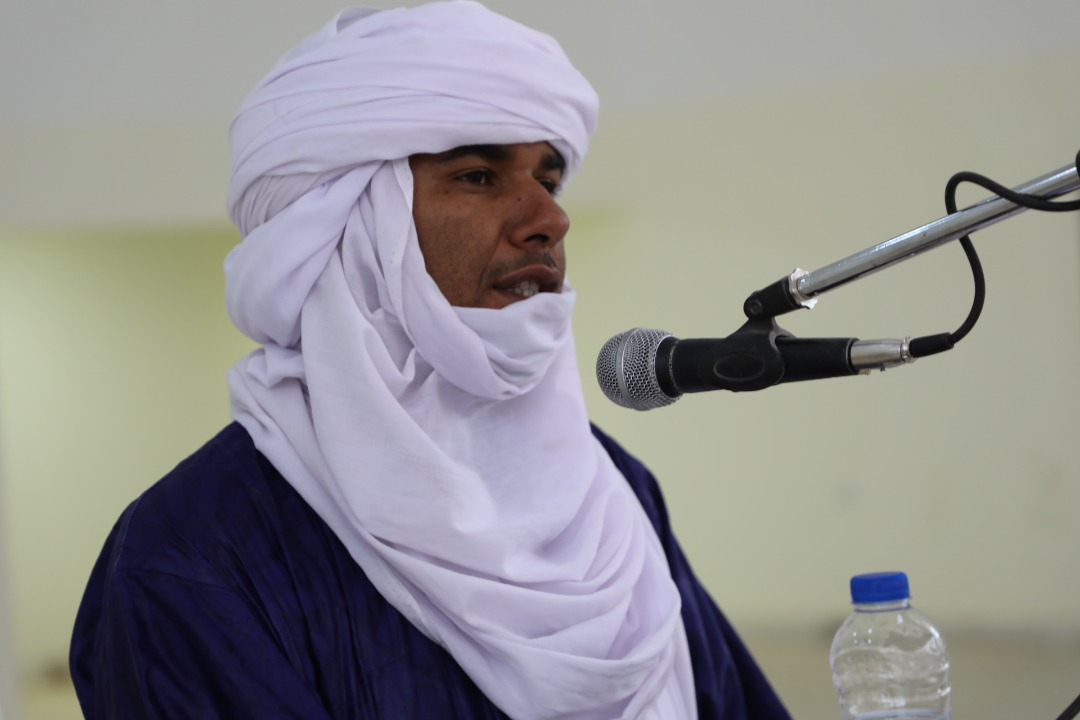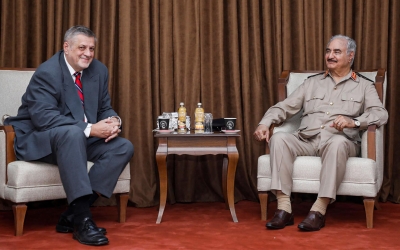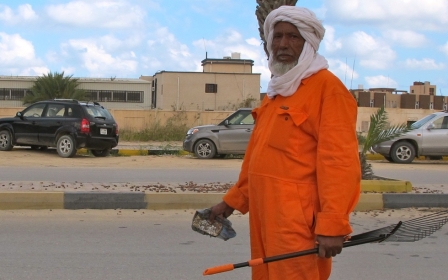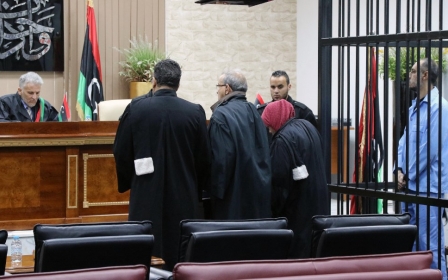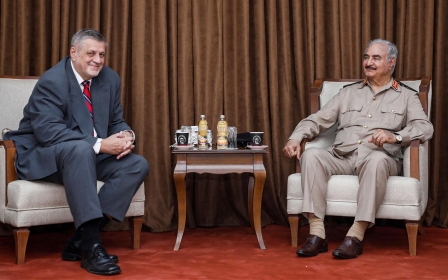Libya: Stateless Tuareg demand rights and inclusion ahead of elections
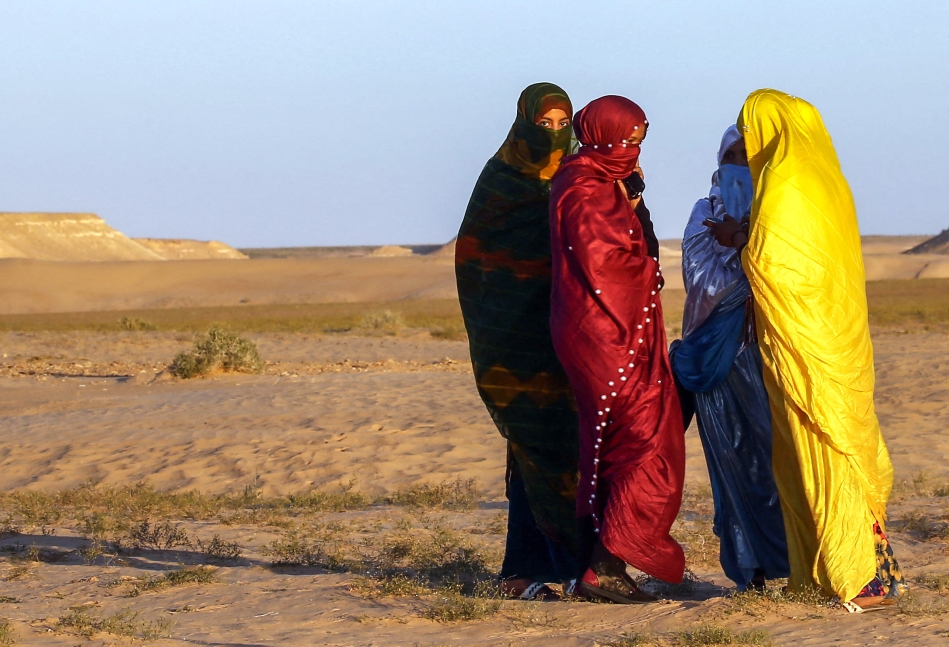
As Libya’s much-anticipated 24 December general elections edge closer, the last month has seen an intensification of frustration and mobilisation among the country's Tuareg minority.
The community, which has long suffered discrimination, fears exclusion from the electoral process, and resents the fact that its decades-long marginalisation has yet to be addressed.
The presidential and parliamentary elections have already been delayed twice over the last three years due to conflict and political instability.
With the formation of the interim Government of National Unity (GNU) in March, the country has now embarked on a path towards repairing national divisions, yet the historic exclusion of certain sections of Libya’s population from citizenship and political participation remains.
Responding to the concerns, last month civil society organisers from within the Tuareg community mounted a demonstration in the southwestern town of Ubari.
Those attending the 14 August event listened attentively as the organisers, the Anti-Discrimination Movement (Hirak La Lil-Tameez), read out a statement of condemnation directed towards the country’s political elite.
Referencing the occasion of the International Day of the World's Indigenous Peoples, which had taken place earlier in the week, they criticised the Presidential Council and leadership of the GNU for "continued and direct exclusion of an indigenous component of the Libyan people".
Prominent actors, such as parliamentarian Rabiya Aburas and the Supreme Council of Libya’s Amazigh minority, responded with statements of solidarity.
'Social peace'
The group behind the initiative in Ubari, locally known as simply “Al-Hirak” (The Movement), frames the calls for electoral engagement within the larger question of their community’s social and political inclusion in the country.
Jafer al-Ansari, a representative of the movement, told Middle East Eye: "It is important to reach our voice to candidates who can defend our cause, and push for a solution through the ministerial officials responsible for procedures relating to nationality and passport applications.
"We seek to promote social peace among all residents and contribute to national development in all regions of the country," he added.
The group’s focus on a comprehensive solution rather than simply ad hoc facilitation for upcoming elections connects to commitments made, but as yet unrealised, by the authorities.
Al-Hirak stresses that Article 2:8 of the Roadmap for a Comprehensive Solution, the document agreed upon in November 2020 as part of the UN-supported peace track, stipulates that the new Libyan government must address the issue for many Tuareg, and others, issued with “temporary” registrations since 1971, rather than having their citizenship rights properly recognised.
The Ubari mobilisation and other activities organised by Al-Hirak challenge the oft-repeated statement that the Tuareg are hostile or indifferent to citizenship.
On the contrary, Khadija Andidi, a female representative in the Supreme Social Council for Libya’s Tuareg, who has been stateless since birth, told MEE: "Participation in the elections is important to us as one of our rights just as it is to all Libyan citizens."
Ottoman dissolution
While no reliable statistics are publicly available, estimates suggest there are some 40,000 to 60,000 stateless people in Libya.
The problem emerged with the Ottoman Empire’s dissolution at the start of the 20th century, when North African territories were divided by victorious colonial powers.
Members of nomadic communities, or those living in border regions, were often excluded from early population censuses.
This was the case for the Tuareg, whose historic nomadic routes were suddenly interrupted by the boundaries of new nation-states.
Sections of the Tebu tribe were similarly left stateless, while other members of the community in the Aouzou Strip had their citizenship revoked in 1996 after the International Court of Justice ruled that the disputed territory belonged to Chad rather than Libya.
For the Tuareg, lack of urbanisation meant that many living in the desert did not initially concern themselves with registration, and some perceived passports as an imposition on their traditional way of life.
Legal limbo
Libya's opening of the “temporary” registry in 1971, however, resulted in a legacy of exclusion from citizenship and consequent indefinite legal limbo.
The new registry was intended to record expatriate Libyans who were encouraged to return to the country by then ruler Muammar Gadaffi’s economic development policies.
Despite this aim, many Tuareg have been caught up in the “temporary” registration category for decades.
Andidi recalls how "most people only realised the significance later when delays to procedures became obvious, and they could not access services".
"At this point, we understood it would impact subsequent generations," she said.
In her case, Andidi’s husband was unable to receive surgery when ill due to lack of citizenship, and the couple could not obtain a birth certificate for their child.
It is in part these experiences that have motivated Andidi to volunteer as a paramedic and help community members access medical treatment.
Mustafa al-Louti, a member of the education committee at Ubari Law School, and himself affected by statelessness, concurs that "the Tuareg in Libya began to feel the negative impacts of not having citizenship as they increasingly settled in the Libyan towns and villages in the late seventies".
"They sought to register their children in schools and gain employment and increasingly needed identification to move freely," he said. "We have been seeking a solution to this problem ever since."
Vulnerable youth
From the early 1980s, many Tuareg entered the country’s military expecting their service to the state would be valued.
Instead, those injured in conflict often found that they could not access treatment or compensation available to others.
As Ansari points out: "Promises of naturalisation in exchange for military recruitment rarely materialised."
In fact, Andidi suggests that the continued exclusion of Tuareg from citizenship was part of a strategy to militarily exploit the community’s vulnerable youth who could access few alternative employment opportunities.
At the same time, the Gaddafi regime sought to promote the facilitated naturalisation of Arab foreigners with the introduction of the Libyan Arab Nationality Law in 1980.
The insertion of the term "Arab" in the new nationality law was emblematic of the privileged status of Arab Libyans in the shifting national identity.
'Historically, all doors have been closed to our community except that of military recruitment to fight in wars. This is evidence of our exploitation'
- Khadija Andidi
This posed significant new challenges for non-Arab indigenous minorities like the Tuareg, effectively continuing their disenfranchisement.
According to Andidi: "The Tuareg have especially suffered from this problem because of racial discrimination against them.
"Historically, all doors have been closed to our community except that of military recruitment to fight in wars. This is evidence of our exploitation."
Direct action
The fall of Gaddafi’s government in 2011 resulted in restrictions on movement for Tuareg without citizenship.
As conflict spread across the country and with new security actors in place, the Tuareg would often struggle to pass through routes that they had done previously.
Additionally, this coincided with the suspension of some bureaucratic measures that had eased the situation of Tuareg, including the issuance of birth, death and marriage certificates, as well as travel documents for stateless Tuareg, while the opening of bank accounts and the registering of SIM cards also became more difficult.
Subsequent governments have failed to resolve the issues over the last decade.
In response to a Tuareg sit-in at the Sahara oil facilities in 2013, the authorities at the time introduced the “administrative number” system for those ineligible for a regular national number – a further perpetuation of their undetermined legal status.
'Take to the streets'
However, the changing situation has presented new opportunities for community mobilisation.
Ansari explains: "I was a member of the popular committees that liaised with authorities before 2011, but we were limited to closed-door meetings.
"After the Libyan Revolution of 2011, we had more space to raise our concerns. For the first time, we could speak to the media and take to the streets."
Then, in January 2020, activists launched Al-Hirak in response to discrimination by the country’s health authorities against members of the community.
Ansari adds: "The movement’s goals are to convey the situation of the Tuareg living with 'temporary' registration and expose the violations routinely committed against them".
'Too complicated'
To complicate matters, some members of parliament, rather than the government as a whole, have focused on the fact that some Tuareg have entered Libya more recently, using this as an excuse for not addressing the historic deprivation of those who have been registered in the "temporary" registers for decades.
Such moves have implied that what has been a historic issue for those who have lived in Libya for decades, and often all their lives, is now "too complicated" to untangle from the recent arrivals following the collapse of the Gaddafi government.
Mohamed Ismio, a lecturer at Misrata University and human rights activist specialising in Libya’s minorities, said: "There are indeed stateless Tuareg from Libya who have been deprived of their rights for decades, but the issue has become confused by other Tuareg entering Libya since 2011, and sometimes this confusion is exploited."
To this, Ansari reiterates that their calls are for citizenship for those with pre-2011 “temporary” registration, while "working in solidarity with victims of discrimination everywhere".
This article is available in French on Middle East Eye French edition.
Middle East Eye propose une couverture et une analyse indépendantes et incomparables du Moyen-Orient, de l’Afrique du Nord et d’autres régions du monde. Pour en savoir plus sur la reprise de ce contenu et les frais qui s’appliquent, veuillez remplir ce formulaire [en anglais]. Pour en savoir plus sur MEE, cliquez ici [en anglais].


